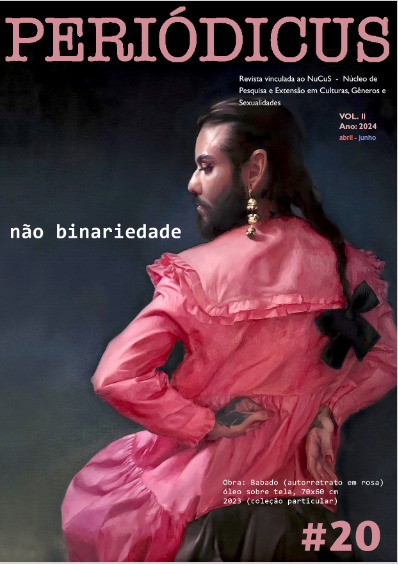Peripheralized youth experiences on gender and race
problematizations based on the theoretical contributions of Lélia Gonzalez
DOI:
https://doi.org/10.9771/peri.v2i20.57606Abstract
This article aims to discuss, based on the contributions of Lélia Gonzalez to the field of social psychology, the intersections between gender and race in the experience of young black individuals in peripheral contexts in Fortaleza. It starts from a qualitative approach, exploring micropolitical strategies to understand the impacts of gender and racial coloniality on young blacks in peripheral areas of Fortaleza. The narratives highlight gender asymmetries and unequal conditions faced by young blacks in racialized contexts. The article emphasizes the importance of debating racial and gender inequalities, denaturalizing instruments of domination present in the Brazilian social structure. The research proposes the production of narratives challenging colonial modes of domination, emphasizing the need for critical epistemologies of coloniality in psychology to strengthen anti-racist and anti-sexist struggles.
Downloads
Downloads
Published
How to Cite
Issue
Section
License
Copyright (c) 2024 Aldemar Ferreira da Costa, João Paulo Pereira Barros, Laisa Forte Cavalcante, Livia Lima Gurgel

This work is licensed under a Creative Commons Attribution-NonCommercial 4.0 International License.
Autores que publicam nesta revista concordam com os seguintes termos:
Autores mantêm os direitos autorais e concedem à revista o direito de primeira publicação, com o trabalho simultaneamente licenciado sob Licença Creative Commons Attribution Noncommercial que permite o compartilhamento do trabalho com reconhecimento da autoria e publicação inicial nesta revista, sendo vedado o uso com fins comerciais.
Autores têm autorização para assumir contratos adicionais separadamente, para distribuição não-exclusiva da versão do trabalho publicada nesta revista (ex.: publicar em repositório institucional ou como capítulo de livro), com reconhecimento de autoria e publicação inicial nesta revista.
Autores têm permissão e são estimulados a publicar e distribuir seu trabalho online (ex.: em repositórios institucionais ou na sua página pessoal) a qualquer ponto antes ou durante o processo editorial, já que isso pode gerar alterações produtivas, bem como aumentar o impacto e a citação do trabalho publicado (Veja O Efeito do Acesso Livre).







